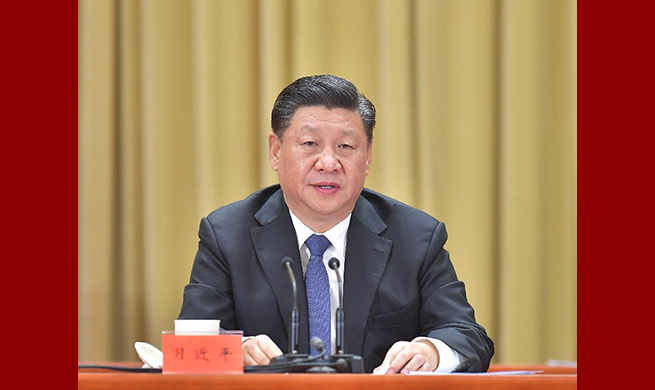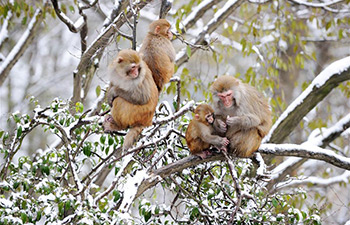WASHINGTON, Jan. 3 (Xinhua) -- American and Chinese researchers developed an experimental therapy that can reduce the spread of a kind of hard-to-treat breast cancer in a mice study.
The study, published on Thursday in the journal Cancer Cell, reported the therapeutic agent that blocks two of the main pathways by which breast cancer cells grow and migrate out of the primary tumor to spread to other organs in the body.
The spread of triple-negative breast cancer is difficult to block, because "if you try one approach, the cancer cells compensate by finding a way to escape," according to the paper's senior author Kang Yibin, professor of molecular biology at Princeton University.
This kind of breast caner is highly aggressive and it occurs in 12 to 17 percent of all breast cancer cases. It gets the name from the lack of three major biological targets that are used to find and kill cancer cells.
Patients with triple-negative breast cancer have high rates of recurrence and fewer treatment options, according to the researchers.
"With this new approach, the treatment blocks both pathways at the same time. It is like having one stone that kills two birds," said Kang.
The researchers found that the new agent called Tinagl1 could inhibit distinctly two main pathways that contribute to triple-negative breast cancer's aggressiveness and ability to resist treatments.
The agent can stop action of a tumor-promoting protein known as EGFR and also target molecules called integrins that are involved in regulating cellular transformation into tumors, according to the study.
The researchers found that high expression of Tinagl1 in mouse cancer cells produced slower-growing tumors that were less likely to metastasize to the lung.
They also administered Tinagl1 protein to mice with breast cancer and found that treatment for seven weeks significantly inhibited primary tumor growth and spontaneous lung metastasis.
Researchers from Fudan University Shanghai Cancer Center and Rutgers Cancer Institute of New Jersey also contributed to the study.

















